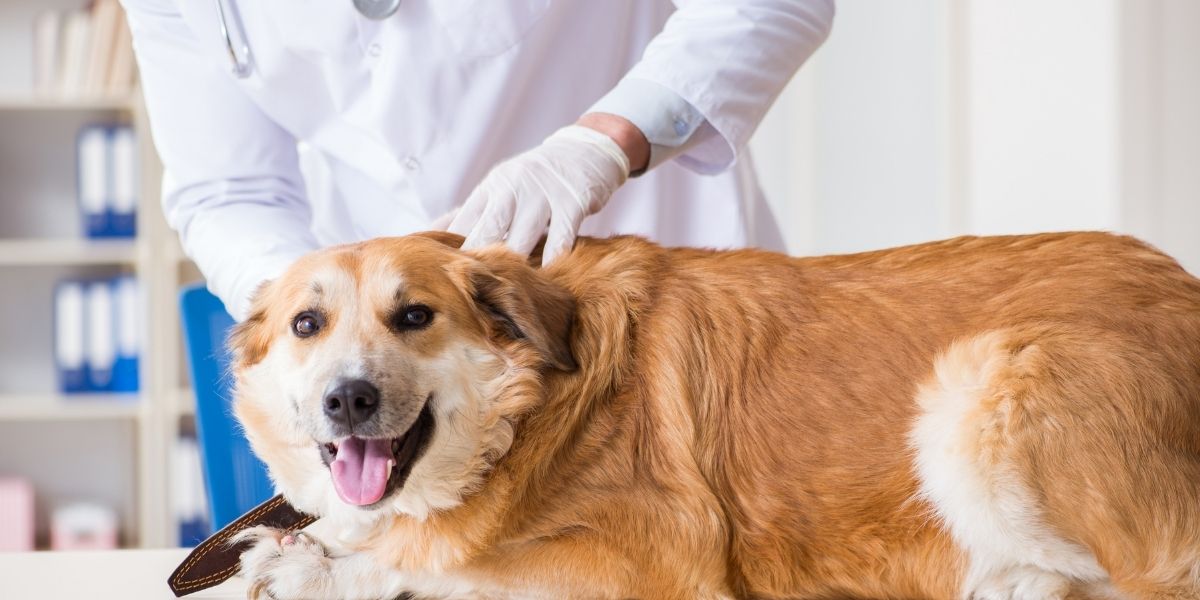Internal deworming in dogs
Internal deworming in dogs is necessary when we adopt a new pet or if we already have an adult dog. The problems caused by internal parasites are diverse, and it is essential to be careful with the animal’s health from the beginning. It is necessary to deworm your dog or cat, as it comes in contact with other animals and us.
Indeed, if you have thought about adopting a pet, you know the responsibilities involved and what life with a dog entail. In today’s article, we will show you what internal deworming involves in dogs, how it can affect the health of the pet, which are internal parasites, and last but not least, how to prevent parasite infection of your dog. Also, if the animal has been infected with an internal parasite, do not panic. There are appropriate treatments that can be beneficial in controlling parasites in the dog’s body.
Internal deworming in dogs – the main parasites that affect animal health
Internal deworming in dogs is essential to eliminate internal parasites that affect the animal’s body. Regardless of breed, height, height, or sex, internal parasites can occur in any dog. It is vital to perform deworming at the right time and not delay a veterinarian’s visit too much.
The main parasites that can be detected in the body of dogs are:
– Roundworms
– Protozoa
– Heartworms
– Ringworms
– Hookworms
– Whipworms
Roundworms
Roundworms are the most prevalent form of a canine worm. In adulthood, roundworms in dogs can grow to be 3-5″ long and resemble a piece of wet spaghetti. Roundworms can be passed from dog to dog through breastfeeding, feeding on an infected animal, or contact with infected excrement.
Tapeworms have long, flat 18″ segmented bodies that may reach 8 inches in length in dogs. Tapeworms in dogs occur when a dog comes into contact with or ingests a tapeworm-carrying host, such as a bird or a flea.
Protozoa
Puppies, the elderly, dogs with weakened immune systems, and dogs who live in close quarters are particularly susceptible to protozoal infections (shelters, kennels, and pet stores).
Some protozoal diseases are zoonotic, meaning they may spread from an infected dog to people.
Protozoa are the organisms that cause protozoal illnesses in dogs. Protozoans are unicellular organisms transferred by the bite of an infected insect or through the parasite’s ingestion.
Giardiasis is an intestinal illness caused by the Giardia protozoan in dogs. Long-term giardiasis affects the gastrointestinal tract, resulting in malnutrition and digesting issues. Humans can be infected with these protozoa.
Giardia is the primary type of intestinal parasite in this category and with which your pet is most likely to come into contact. This intestinal parasite comes in two forms: active and inactive. The active form lives in the intestine, and the inactive form lives outside the host, covered by a hard shell. The dog can become infected with Giardia by ingesting that carcass. Usually, after infestation with this parasite, the dog may show feelings of vomiting and diarrhea. This parasite can also affect humans.
Heartworms
Heartworms that reside within the dog develop into adults, mate, and create progeny since the dog is a natural host for them. If left untreated, their numbers can grow to the point that dogs can have hundreds of worms in their body. Heartworm illness causes long-term damage to the heart, lungs, and arteries and can harm a dog’s health and quality of life even after the parasites have died. As a result, prevention is by far the best choice, and therapy should be given as early as possible in the course of the disease.
Ringworms
Ringworms are another category of internal parasites that can infest your pet. Ringworms, compared to broad worms, have an average length of 7-12 cm. There are over 200 species of this type of parasite. Ringed worms feed on food partially ingested by the dog. Symptoms may be noticeable, but in severe cases, the dog may have: swelling of the abdomen, dull fur, loss of appetite, weight loss, diarrhea, vomiting, and itching in the anal area. Most dogs are born with ringed or rounded worm larvae in the system or are transmitted through breast milk. Therefore, it is essential to make an appointment with your veterinarian after the birth of your puppy or cat.
Hookworms
Hookworms are another type of internal parasite. They feed on blood and attach to the dog’s small intestine. This internal parasite is quite dangerous, as it can reach the lungs and cause problems similar to pneumonia. Hookworms can also be transmitted to humans through dog fecal contact with the skin and manifest by skin reactions.
Whipworms
Whipworms live in the dog’s large intestine and are more difficult to detect on stool analysis. Symptoms may be noticeable, but pet owners should be alert to changes in the dog’s behavior.
Infestation with internal parasites in dogs – Symptoms
We can quickly tell if our pet has been infected with an internal parasite. Dog owners should be alert to any changes in behavior as well as the following symptoms:
– Nausea
– Vomiting
– Diarrheal
– Weight loss
– Balloon abdomen
– Fatigue
– Itching in the anal area
Some internal parasites can also be seen with the naked eye: broad worms can be seen in the dog’s fecal in the form of rice grains, and ringed worms can be noticed in vomit or the dog’s stool.
Internal deworming in dogs – how to do it
Internal deworming in dogs is essential in any dog. Medicines used for internal deworming should be administered on the advice of a veterinarian. The doctor will determine what type of internal parasite your dog has been infested with, as well as the treatment to follow.
When should internal deworming be performed on dogs?
Internal deworming in dogs: from 6 weeks. 2 times/month, up to 3 months, then four times/year. Greater attention must be paid to pets, as they may contact various parasites, both internal and external.
On the Biotur Shop platform, you can buy the medicines needed for the internal deworming scheme in dogs. Your pet deserves all the attention to have a healthy lifestyle.



